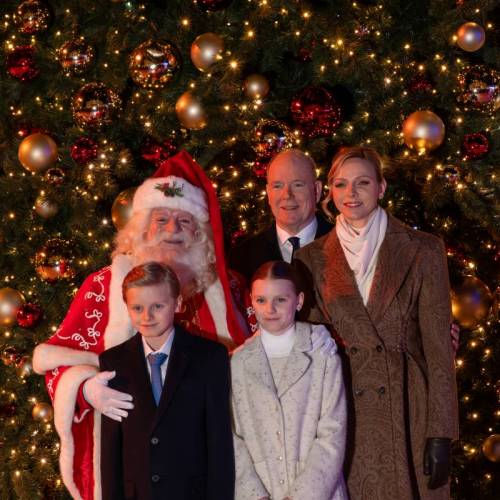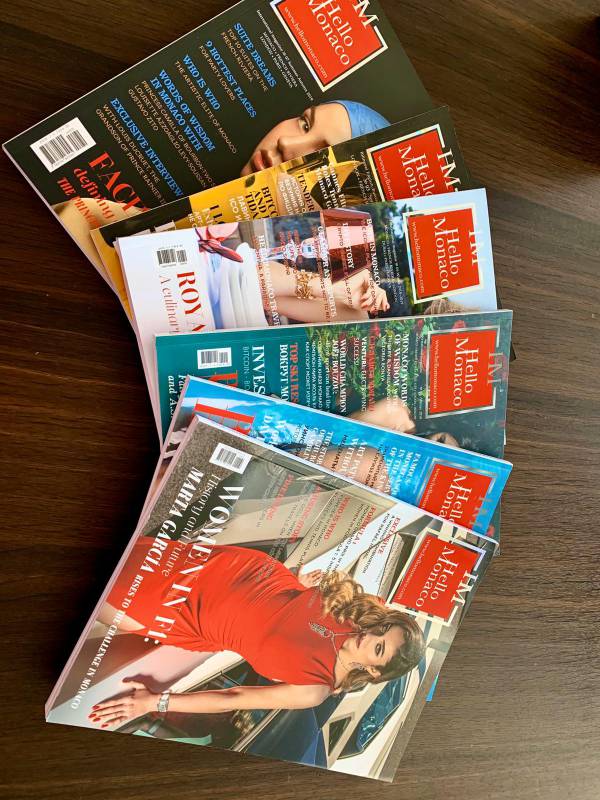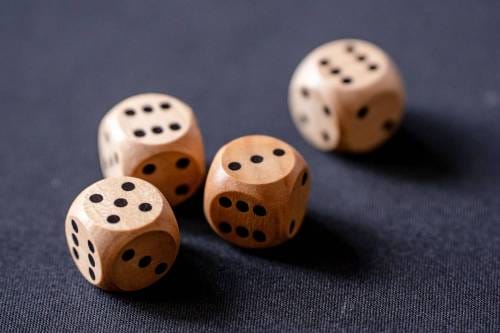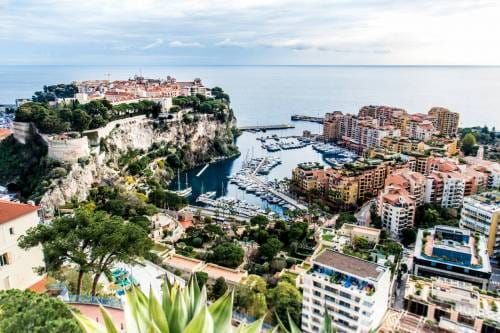The Scientific Centre of Monaco was awarded two cheques of 140,000 and 100,000 euros respectively by Gemluc and the Flavien Foundation, representing invaluable gestures for the unwell.
Another step forward on the common path: a boost of 240,000 euros has been given to fight the diseases plaguing society, about which still far too little is known and against which Professor Patrick Rampal’s teams tirelessly work at the Scientific Centre of Monaco (CSM). Last Wednesday, the President of the Monaco Multinational Enterprises in the Fight Against Cancer (Gemluc), Dr.Béatrice Brych, presented the teams at CSM with a cheque for 140,000 euros. The next day, a considerable amount was paid by the Flavian Foundation, totalling 100,000 euros (see below).
Renowned for its research in marine biology, the CSM has diversified over the last 10 years with the creation of a department of medical biology, with teams working on translational research – applied to patients – working in close partnership with the CHPG and “a medical circuit of choice”. Among them, two cancer research teams were made permanent thanks to the support of the Princely government and foundations such as Gemluc, which, with their second cheque in two years, is committed to a new 5-year agreement with the CSM. This loyalty is essential for an institution for which 20% of the budget is based on patronage. Especially since these donations injected do not cover any management fees and go entirely to research.
Finding “Targets”
In the lab, Jacques Pouysségur, the Professor and Director of Research, along with his team, will transform these euros into hope. “Three types of stress are being studied. Nutritional stress, acidity and a new very important axis: oxidative stress,” said the researcher. Therefore, antioxidants are at the heart of the study.
“It has become very delicate and controversial to take them because most of the most aggressive tumours use antioxidants to develop more quickly. It was only recently that we discovered this problem,” according to the specialist.
Antioxidants are molecules naturally present in many foods and they function by capturing free radicals which are responsible, among other things, for cell aging.
Thanks to Gemluc’s donation, the CSM was able to recruit a post-doctoral student from the University of Belgrade, Mélissa Vucetic, who is a specialist in the subject.

An appropriate CV and an obvious boost for this new project which is proving to be a bit of a balancing act, knowing that antioxidants have both a “favourable and deleterious effect at the same time,” said Patrick Rampal.
The objective, in plain terms, will be to identify “targets” that can be exploited and developed in pharmacological activities, in order to counter degenerative diseases. “There are three or four important targets for oxidative stress (…) including two carriers of cystine (amino acid),” summarised by Professor Pouysségur. Here we have a battle on a microscopic scale.
The benefit of a cross-sector approach
On a human scale, this project will have the benefit of a cross-sector approach. “It’s really down to CSM’s originality. Most of all, it is that all these people work in the same place and use the same material,” explained Professor of Marine Biology, Denis Allemand, giving example.
“There has been a lot of work on this antioxidant problem in marine biology, since corals undergo daily stress (…) and these animals manage to resist. Lessons can be drawn from the natural world.”
These sorts of fascinating and revolutionary approaches are supported by the Gemluc because they are part of its DNA, according to Gemluc’s Vice President, François Brych.
“This is part of our organization’s genes. We used to give to the Lacassagne Centre (Nice), and then our donations went to the oncology service of the CHPG and to CSM, especially since many people from Nice are being treated in Monaco. As for Gemluc’s investment, which totalled more than 300,000 euros last year, President Béatrice Brych summed it up by highlighting the support given by the “CSM to other organizations, for helping the sick”, or also “the purchase for the CHPG of a 3D surgery column to see dissection planes.” In addition to the Gemluc Art (international art competition), Gemluc funds come from a chain of solidarity symbolised by voluntary employer contributions from its supporters. Well done!
Flavien Foundation: “We are united in the fight”
There are about thirty organisations and all of them have gathered around the Children’s Party, which wants to create a law guaranteeing a fund dedicated to public research on paediatric cancer and leukaemia, amounting to 20 million euros per year, and to bring a “flame of hope” in order, in particular, to create links between associations.

Research Update
The Flavien Foundation is one of these associations. And it is one of its members, Benjamin, 24 years old and a student in Nice, who helped deliver this flame, by train or carsharing. Scheduled to arrive in Paris on 19 February after Bordeaux, Lyon, Strasbourg … Departing from Marseille on Wednesday, the flame was in Monaco on Thursday evening. That evening, at Casa di Soci, the Flavian Foundation presented a cheque for 100,000 euros to the Scientific Centre of Monaco to fund research against paediatriccancers. As it did last year and will continue to do next year. The cheque handover took place before a large audience.
“We are united in the fight,” said Denis Maccario, the founding President of the Flavien Foundation. It is also an opportunity to discuss paediatric cancers. The Scientific Centre of Monaco is working on adapting the treatment of adults to children, and their scientific study has “made considerable progress”, explained Gilles Pagès, director of research at INSERM, put in charge by the Scientific Centre of Monaco. Other research areas include: finding “new therapeutic targets”, and “limiting the toxicity of radiotherapy (thanks to protons) and chemotherapy”.
The CSM is working in collaboration with the Antoine-Lacassagne Centre of Nice and the Institute for Research on Cancer and Aging. And recently, the Flavien Foundation also presented two chequesof 30,000 euros to teams at CNRS and INSERM, still to fight against paediatric cancers.
Thanks to the generosity and collaboration of these donors, the Scientific Centre of Monaco can now use these cheques to help bring further hope for cancer research.








